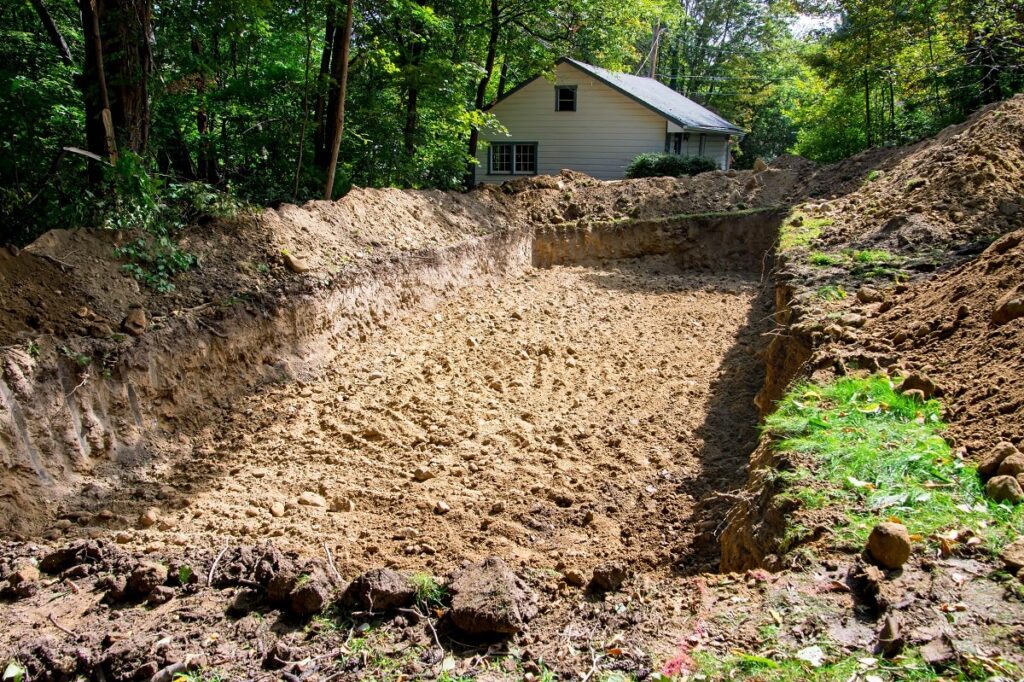Why Is My Yard Always Soggy? Drain Field Problems Explained

A soggy yard can raise questions about what is happening beneath the surface. For homeowners with septic systems, standing water often points to a problem with the drain field. At Ready Septic LLC, we help residents address these concerns with professional solutions, including drain field repair in Rock Hill, SC.
What Exactly Is a Septic Drain Field?
A septic system consists of two main parts: the septic tank and the drain field (also known as a leach field). The septic tank collects all the wastewater from your home, where solids settle to the bottom. The liquid effluent then flows out into the drain field through a network of perforated pipes buried in a bed of gravel and soil. This soil acts as a natural filter, treating the wastewater before it is safely absorbed into the ground.
When the drain field is working correctly, this process is invisible and efficient. However, if the field becomes saturated or clogged, the effluent has nowhere to go. This leads to the liquid pooling on the surface of your yard, creating the soggy conditions you’re noticing.
The Reasons Behind a Soggy Yard
Several factors can lead to a failing drain field. One of the most common is hydraulic overload. This happens when too much water enters the septic system at once, such as during heavy rainfall or from excessive household water use. The drain field simply can’t handle the volume, and it gets waterlogged.
Another major cause is biomat buildup. Over time, a gelatinous layer of organic material forms around the pipes in the drain field. This biomat is a natural part of the wastewater treatment process, but if it becomes too thick, it can clog the pipes and prevent the effluent from seeping into the soil. This is a primary reason a septic leach field repair is often needed.
Physical damage is also a possibility. Driving heavy vehicles, planting large trees with invasive roots, or constructing a structure over the drain field can compact the soil or crush the pipes, leading to blockages and failure. Regular maintenance and careful landscaping are essential to prevent this kind of damage. Addressing a septic field repair promptly can prevent more extensive issues later.
Understanding the Signs of a Failing Drain Field
Beyond a soggy yard, there are other clear signs that your drain field may be failing. A foul odor in your yard is a significant indicator, often smelling like sewage or rotten eggs. This smell is a direct result of untreated wastewater pooling near the surface.
Slow drains and gurgling sounds from your plumbing are also classic symptoms. When the drain field is clogged, the wastewater backs up into the septic tank and then into your home’s pipes. This can cause toilets to flush slowly and drains to empty sluggishly, which can ultimately lead to the need for a septic drain field repair.
FAQs About Your Septic System
Q: How much does a leach field repair cost?
A: The leach field repair cost varies widely depending on the extent of the damage, the size of your system, and local regulations. A professional inspection is necessary for an accurate quote.
Q: Can I fix a drain field myself?
A: Repairing a drain field is a complex process that requires expertise and specialized equipment. It is best left to licensed professionals to ensure the work is done correctly and safely, adhering to all local health codes.
Q: How can I prevent drain field problems in the future?
A: Regular septic tank pump-outs, avoiding excessive water use, and being careful what you put down your drains (like grease and non-biodegradable items) are the most effective ways to maintain a healthy system.
At Ready Septic LLC, we bring over 30 years of combined industry experience to every project. We’re dedicated to helping homeowners in the Rock Hill area with reliable and effective septic solutions. Call us today to schedule an appointment.

